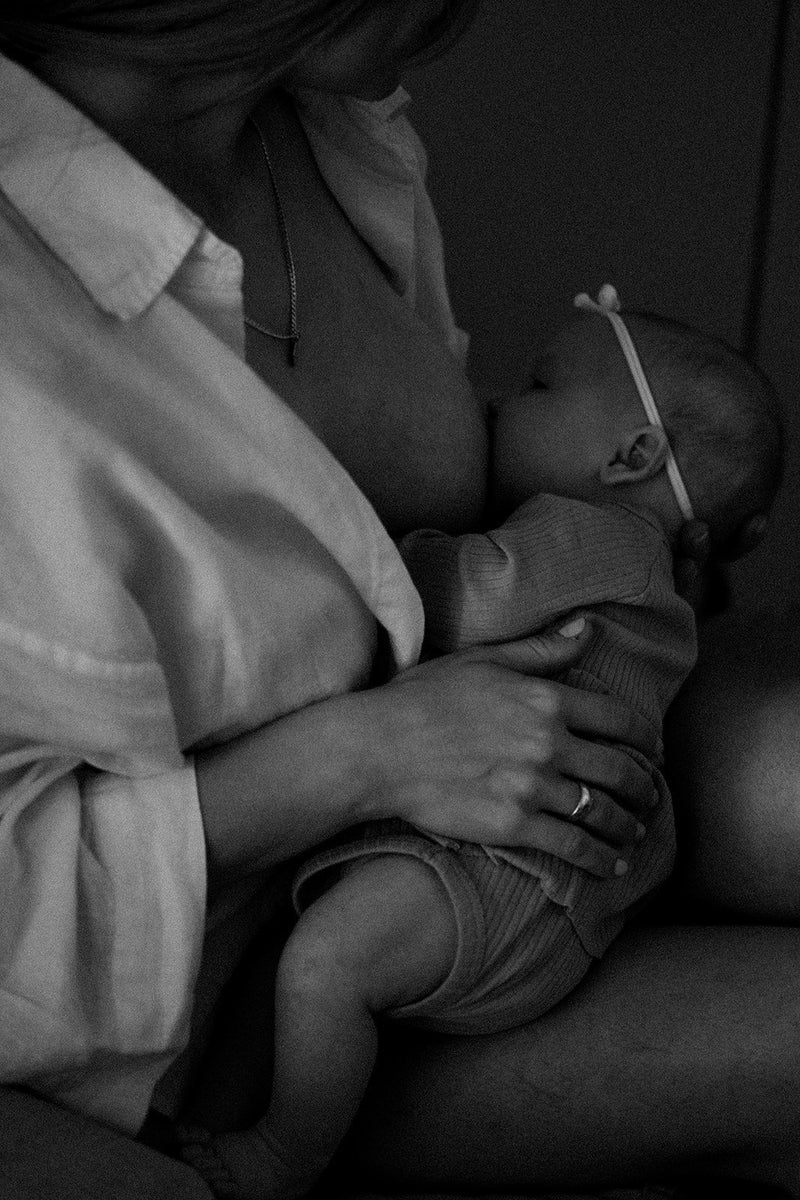From the moment you start trying to conceive, your pregnancy journey will likely be filled with questions. From financial planning to fertility treatment options to supporting a healthy pregnancy and postpartum recovery, you already have a lot on your mind—and cancer is probably the last thing you want to think about right now.
But breast cancer is the most common type of cancer among pregnant and postpartum women, so it’s important to understand your risk and take proactive steps to protect your health.
How Pregnancy Affects Breast Cancer Risk
The link between pregnancy and breast cancer risk is complicated. In the short term, pregnancy can increase your breast cancer risk—but the extent of that risk depends on a few different factors. And research suggests pregnancy may actually offer some long-term protection from developing breast cancer down the road. Here’s what you need to know.
1. Your age during your first full-term pregnancy plays a role.
Research suggests women who have their first baby before age 35 have a slightly lower risk of breast cancer than those who start later.
This may be linked to fluctuating hormones during pregnancy. Estrogen and progesterone levels increase during pregnancy to support your growing baby and prepare your body for breastfeeding. Higher levels of these hormones cause the breast cells to grow and multiply rapidly. Unfortunately, that includes any pre-existing malignant cells or cells with genetic damage (a precursor for breast cancer).1
The older you are, the longer your body has been producing or exposed to estrogen—and experts believe this cumulative estrogen exposure may boost your breast cancer risk by making you more susceptible to hormone-related risk factors as you age.2
2. Breast cancer risk is elevated after giving birth.
One study suggests this elevated risk peaks around five years after giving birth, when you’re up to 80% more likely to develop breast cancer than someone who hasn’t given birth. After that, the risk slowly starts to decline (emphasis on slowly). Research suggests your risk remains elevated, at least slightly, for more than 20 years after giving birth.
But in the long term, childbirth may offer some protective benefits. Researchers found that, 34 years after childbirth, women have a significantly lower risk of developing estrogen receptor-positive breast cancer compared to someone who hasn’t given birth.3
3. Multiple pregnancies may lower your risk.
If you’re planning a big family, it could potentially lower your breast cancer risk, especially if your kids are spaced close together.4 According to the National Cancer Institute, the risk of developing breast cancer decreases slightly with each full-term pregnancy. A woman who’s given birth five or more times has half the risk of a woman who hasn’t given birth.5
The protective effect of multiple pregnancies is especially important if you have a BRCA1 or BRCA2 mutation, also known as the “breast cancer genes.” Women with a BRCA1 mutation had a 21% lower risk of breast cancer after a second full-term pregnancy, compared to BRCA1 carriers with a single pregnancy. After four pregnancies, their risk was 50% lower.6
For women with the BRCA2 mutation, however, researchers didn’t notice any protective benefits until the fourth full-term pregnancy.7
4. Pregnancy may make breast cancer harder to detect.
Not only can pregnancy affect your breast cancer risk for better and worse, but it can also make it more challenging to get a timely diagnosis.
Breast tissue typically gets more dense during pregnancy, which can make it difficult to find a lump during a self-exam and may cause a false negative during a mammogram.8 After your baby arrives, a lump can easily be mistaken for a plugged milk duct. These factors can delay a proper diagnosis — which means breast cancer may not be detected until it’s at a more advanced stage.
5. Pregnancy is linked to an aggressive form of breast cancer.
When breast cancer is diagnosed during pregnancy or within the first postpartum year, it’s referred to as Pregnancy-Associated Breast Cancer (PABC). This tends to be a more aggressive form of breast cancer, for a few reasons:9
- Hormonal changes during pregnancy can cause certain types of tumors to grow faster.
- Your immune function dips during pregnancy to protect your growing baby, but this can make it harder to fight off abnormal cells.
- Because pregnancy can make it harder to detect breast cancer, it may take longer to diagnose and begin treatment.
- Younger women are more likely to have fast-growing, aggressive forms of breast cancer—so if you’re diagnosed during pregnancy, you’re likely to be within the demographic for these types of cancer.
- Women may postpone treatment out of concern for their baby’s safety.
Managing Your Breast Cancer Risk During Pregnancy
While this info may be a bit daunting, take some comfort in knowing that the risk of getting diagnosed with breast cancer during pregnancy is relatively small. PABC affects 1 in 3,000 pregnant women.10
However, the lifetime breast cancer risk for women is 1 in 8, or 13 percent.11 So it’s important to stay on top of routine screenings and take steps to reduce your breast cancer risk, not just during pregnancy, but at every stage of life.
Here are a few ways to lower your risk:12
- Maintain a healthy weight. Weight gain is linked to a higher risk for breast cancer, especially after you reach menopause.
- Get some movement each day. Aim for at least 150 minutes of moderate activity each week. This translates to about 20 minutes each day. (If you’re pregnant, talk to your OB/GYN about what activities you can do safely.)
- Cut back on alcohol. This is a no-brainer during pregnancy, of course, but consider maintaining this healthy change after your baby is born. Consuming more than one drink per day on a regular basis is linked to an increased risk of breast cancer.13
- Don’t skip your screenings. Mammograms and ultrasounds are generally considered to be safe during pregnancy. If you’re due for a screening, talk to your doctor about the best time to schedule it.
- Speak up. If you notice anything out of the ordinary, let your doctor know ASAP. Treatment options are available that are safe during pregnancy, but early detection is crucial for the best possible outcome.
Shop the Article:
Next up: What to know about motherhood after breast cancer, plus 11 benefits of breastfeeding.

theFolio in Your Inbox
Sign up to receive doctor-backed, stage-specific content in your inbox each week.
References:
5. National Cancer Institute: Reproductive History and Cancer Risk
8. National Cancer Institute: Breast Cancer Treatment During Pregnancy
10. National Cancer Institute: Breast Cancer Treatment During Pregnancy
11. American Cancer Society: Key Statistics for Breast Cancer
12. American Cancer Society: Can I Lower My Risk of Breast Cancer?
13. MD Anderson Cancer Center; Alcohol and breast cancer risk: What to know; Sept 2017
This article is for informational purposes only. It is not, nor is it intended to be, a substitute for professional medical advice, diagnosis, or treatment and we recommend that you always consult with your healthcare provider. To the extent that this article features the advice of physicians or medical practitioners, the views expressed are the views of the cited expert and do not necessarily represent the views of Perelel.























